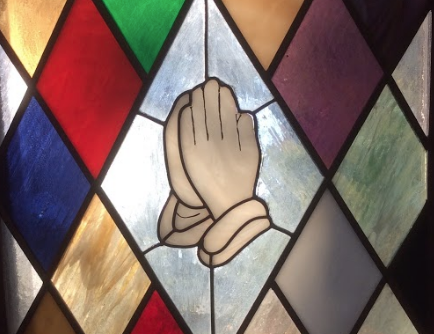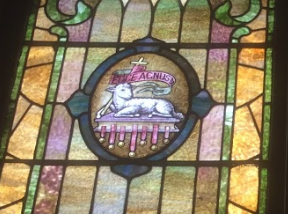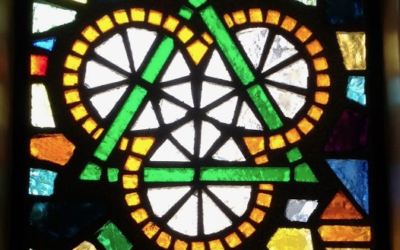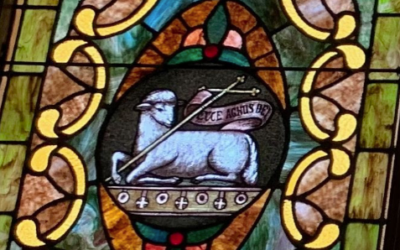Thanksgiving – Remember the Lord’s Kindnesses
Watch the service

Read the sermon
Who Grasps God’s Goodness?
How deep does it go? In Oregon there is a lake that is really deep. They call it, “Crater Lake.” It’s set in the inside of a volcano that exploded long ago. And for many years it was this fascinating place for Geologists because they had no idea how deep it was. In fact, they had not tools to figure out how deep it was. They would let down ropes to sound the depths. And they would often run out of rope. In 2000 they finally had the technology to get the job done. Using a type of sonar they found out that the lake was 1,949 feet deep.1 That’s a deep lake. This morning God’s word asks us a similar kind of question. How can you measure something that is that deep? But here we’re not talking about water. Here, in these words we are talking about God’s goodness. How can we begin to grasp it? In Psalm 106, we read: “1 Hallelujah! Give thanks to the Lord, for he is good; his faithful love endures forever. 2 Who can declare the Lord’s mighty acts or proclaim all the praise due him? 6 Both we and our ancestors have sinned; we have done wrong and have acted wickedly. 7 Our ancestors in Egypt did not grasp the significance of your wondrous works or remember your many acts of faithful love;” (Psa. 106:1–2, 6–7 CSB17)
The psalmist asks this important question: Who can grasp God’s goodness? And notice where he goes to answer that question. He answers that question by letting us know that his ancestors could not. He begins by taking us back to the Red Sea. And there at the Red Sea we see a path and a progression. First, the Lord gives them a promise. The Lord goes out of his way to promise to them that he will bring them out of Egypt into the promised land. And the way the Lord does is is wonderful. He has each family get together during the passover meal. He has the head of the household teach the children that they used to be slaves in Egypt. But the Lord rescued them. Notice the point: The Lord made a promise to take them out of Egypt to the promised land.
After the promise though came the push back. The got to the Red Sea. The Red Sea was in front of them and the best and fiercest of Pharaoh’s army was behind them. They told Moses: ““Was it because there were no graves in Egypt that you brought us to the desert to die?” (Ex. 14:11 NIV11-GKE) In their fear and fright they complained against Moses and rebelled against him.
What happened next? The Lord gave them a provision. Moses told his people: “13 “Do not be afraid. Stand firm and you will see the deliverance the Lord will bring you today. The Egyptians you see today you will never see again. 14 The Lord will fight for you; you need only to be still.”” (Ex. 14:13–14 NIV11-GKE) And finally then, when the Egyptians were dead and drowned in the sea, they could look behind them and praise the Lord.
Well, let’s go back to the question: Did the ancient Hebrews grasp God’s goodness? For, after the promise, push-back, provision, there came praise of God from their lips. Did they grasp God’s goodness? Let’s read further in these words: “7 instead, they rebelled by the sea—the Red Sea. 8 Yet he saved them for his name’s sake, to make his power known. 9 He rebuked the Red Sea, and it dried up; he led them through the depths as through a desert. 10 He saved them from the power of the adversary; he redeemed them from the power of the enemy. 11 Water covered their foes; not one of them remained. 12 Then they believed his promises and sang his praise. 13 They soon forgot his works and would not wait for his counsel. 14 They were seized with craving in the wilderness and tested God in the desert. 15 He gave them what they asked for, but sent a wasting disease among them. 44 When he heard their cry, he took note of their distress, 45 remembered his covenant with them, and relented according to the abundance of his faithful love.” (Psa. 106:7–15, 44–45 CSB17)
Did they grasp his goodness? And the blunt and brutal answer we see here is: No, they did not. The same pattern that happened before followed after: Promise → Push-back → Provision → Praise. The Lord promised to care for them and watch over them and finally bring them into the promised land. But then when the air was dry and the sky was hot and when the food started to run out they complained and rebelled. They said, “The Israelites said to them, “If only we had died by the Lord’s hand in Egypt! There we sat around pots of meat and ate all the food we wanted, but you have brought us out into this desert to starve this entire assembly to death.”” (Ex. 16:3 NIV11-GKE)
Notice, my dear friends in Christ, what the writer of this psalm is doing. He is letting us, “our fathers forgot.” Here he gives two examples. And what follows is many more. They forgot. Again and again they forgot. And eventually they forgot so much that they stopped thinking about God’s goodness at all. They finally ended up offering up so very much thanks and praise—but not to the Lord. No, they praised and thanked other gods.
The psalmist wants us to ask this question: Do we grasp God’s goodness? For the Lord treats us the same as them. He comes to us with invitations and promises. But when we do not see his plan unfolding before our very eyes, we are just like them. We panic. We complain. We put other people down. We would dare never put God down. But, like the ancient Hebrews, we don’t hesitate to put down those who remind us to trust the Lord and follow him. And when that happens, notice what happens after that. Where there is needless complaining bitterness follows. And when the bitterness shows up, the the praise and thanksgiving is gone. For all of our time and energy is spent in that empty well of complaining.
The writer of this psalm saw this problem as the huge problem that it was. And that’s why he reached out and cried out to God in these words: “47 Save us, Lord our God, and gather us from the nations, so that we may give thanks to your holy name and rejoice in your praise. 48 Blessed be the Lord God of Israel, from everlasting to everlasting. Let all the people say, “Amen!” Hallelujah!” (Psa. 106:47–48 CSB17)
It is so easy for us to forget. And here I’m not talking about forgetting how deep and wide and broad God’s goodness is. But it’s so easy for us to forget that that should even be a pursuit to follow in our hearts and minds. It’s so easy to conclude that we we have the right to throw up one unneeded complaint after another. And the psalmist here gets to the heart of the issue. We need salvation from this sin. And that salvation does not come from us. It comes from God. And we find that in our Savior, Jesus. We panic, but Jesus prays. We forget our Father’s goodness, but Jesus appreciates it. We cannot begin to grasp our Father’s goodness. But Jesus does and praises him for it. And Jesus’ faithfulness becomes our own in Christ. The writer of the psalm prays for salvation. And in Christ it is given.
But our good and gracious Lord does even more. He gives us the ability to begin to grasp his goodness. And my dear friends in Christ, When your life is hard—and it will be. Complain. How odd it is for you to hear that from your pastor. For I just got done talking about how it was wrong to complain. Yes, unhealthy, unproductive complaining is a bottomless pit. But there is a healthy complaining. And you’ve just seen an example of his here. The psalmist complains that he, just like his ancestors, is so prone to forget God’s goodness. He complains to our Lord, asking, begging for salvation and strength. That sort of complaining our Lord loves. And as we are forgiven he gives us the ability to thank him. And what a gift that is. Even in our darkest moments we can still stop, pause and pray. We can still praise and thank our Lord. For even though he tests us and we fail him, he will keep his promises. And when we stop and pause and look at the blessings we have all around us—even amidst our troubles and sorrows, we begin to grasp our Lord’s goodness. Amen.
1 Crater Lake



